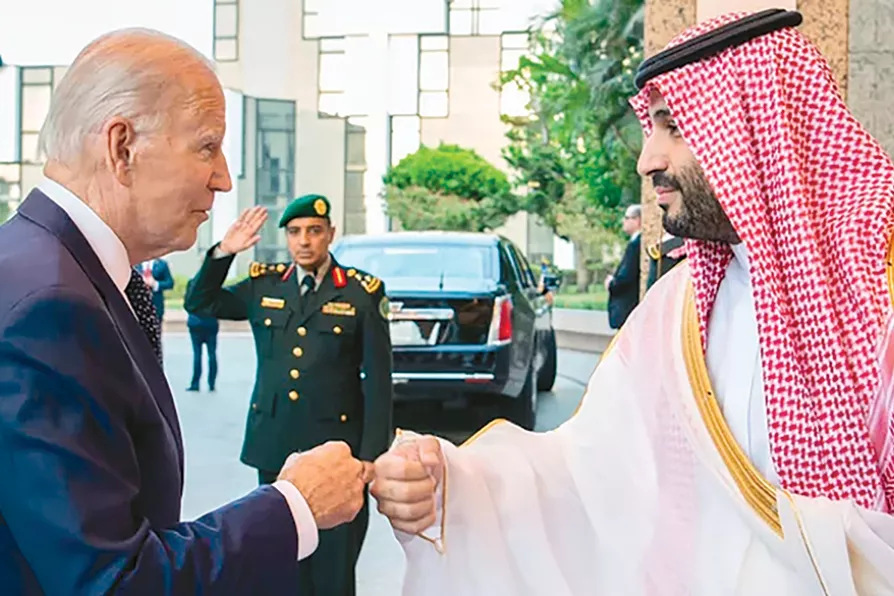RAMZY BAROUD offers six reasons why Netanyahu is prolonging conflict in the Middle East

 MIDDLE EAST SHIFTING SANDS: Joe Biden and Mohammed bin Salman in Jeddah, July 2022
[Saudi Press Agency/CC]
MIDDLE EAST SHIFTING SANDS: Joe Biden and Mohammed bin Salman in Jeddah, July 2022
[Saudi Press Agency/CC]
A NEW chapter in the modern history of the Middle East is beginning, and what’s most significant about it is the dwindling influence of the United States.
Back in March, the People’s Republic of China helped broker a groundbreaking diplomatic rapprochement between the Kingdom of Saudi Arabia and the Islamic Republic of Iran. Seven years ago, Riyadh and Tehran completely broke off diplomatic relations, and since then have been involved in proxy conflicts in Yemen, and to an extent in Syria and Iran itself, as well.
The normalisation of relations between these two regional powers is a major step towards peace in the wider Middle East.

The US’s bid for regime change in the Islamic Republic has become more urgent as it seeks to encircle and contain a resurgent China, writes CARLOS MARTINEZ

Despite internal pressure over the Gaza genocide, Narendra Modi’s government has deepened relations with Tel Aviv. ROGER McKENZIE explores the geopolitics behind these strengthening links












